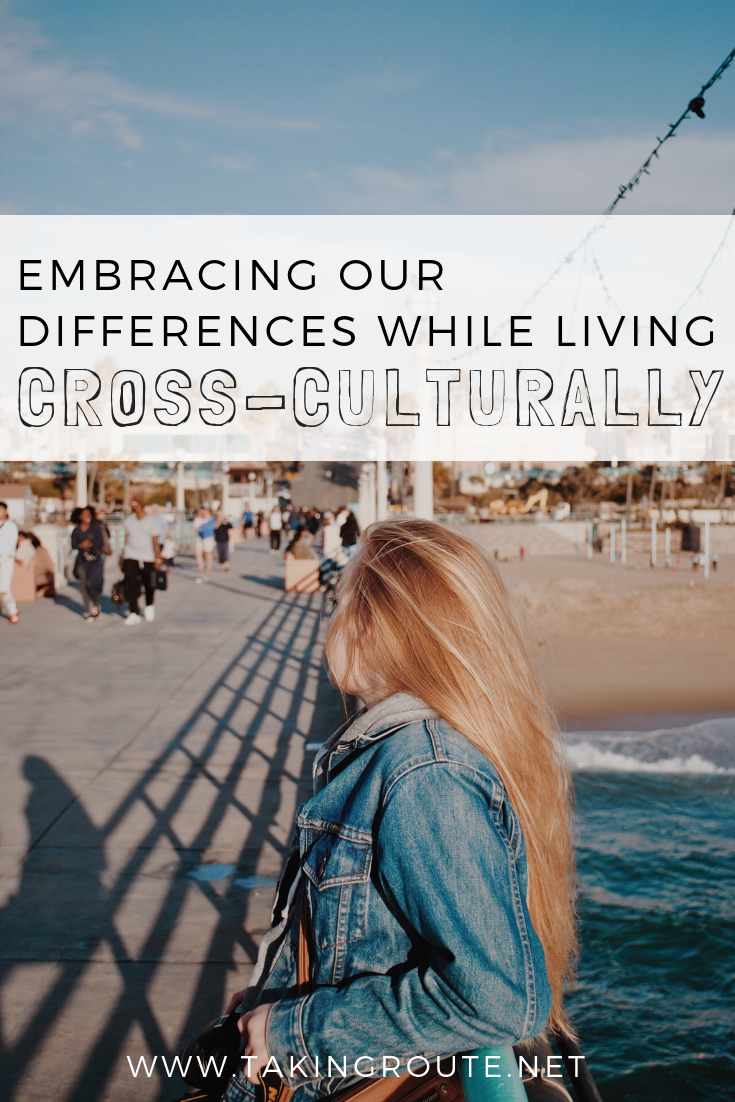Embracing Our Differences While Living Cross-Culturally
“I just wish I had a friend who really understands me.” Her blue eyes peered up at me from beneath her dark lashes, sadness brimming at the edges and ready to spill over onto her freckled cheeks.I hugged her close and said, “I know, sweetie.I know you do.”But what I really wanted to say was, “Me too.”
My 10-year-old daughter has been given the gift of seeing and processing the world differently.
Where others see black and white, she sees a rainbow. Her mind doesn’t fit into the mold of traditional academia and she struggles with feeling misunderstood. As her mother, I see such beauty and creativity in the unique part she plays in the world -- but I also see how heavily it weighs on her to feel like no one understands her.Not only does she live in a world where her behavior and intelligence isn’t always appreciated, but she also happens to live on the other side of the globe from her passport country and has to navigate language and cultural barriers.It’s hard being different.When we first moved abroad I remember thinking, “I knew how to be a normal person in America.”But here?I didn’t know how to do much at all.I couldn’t speak the language or go anywhere without being stared at.Tasks that had always come easy like buying groceries or driving or cooking dinner or even going to the bathroom (squatty-potty learning curve, anyone?) had to be re-learned in a new country/language/culture.
Several years later, I still find myself getting weird looks and raised eyebrows because of how I do things.I have adjusted, learned language, studied culture, and done my best to adapt to this beautiful country we call home now, but not a day goes by when I am not keenly aware of how I will never totally fit in.It’s hard being different.Before we moved overseas I had an extremely difficult time relating to my daughter.
I just didn’t understand why she was the way that she was.
What made her stop to pick up an ant and risk getting hit by a car in the middle of a busy parking lot?
Why did she draw with Sharpie all over the walls of our church youth room?
What caused her to climb over the fence to chase our cat who got out of the yard or put everything in her mouth or constantly wear mismatched clothes or take F-O-R-E-V-E-R to be ready to go anywhere or do anything?
I wanted her to fit into my idea of who she should be when I should have been looking for ways to love and celebrate her exactly as she was. I often labeled it as bad behavior when it was actually the way she is wired -- the only way she knew how to be.I might not have never understood that if I hadn’t been forced into this life of being “different” myself.
Living abroad has been such a gift to me in helping me understand the people in my life who are “different.”
I never expected that becoming an expat would help me relate better to my daughter, to sympathize with her more in her struggles, to have a deeper grace and willingness to see her for who she is. Isn’t that what we all really want, just to be seen and known and loved for exactly who we are?I know she will learn, grow, and adapt over time, just as I've had to do here.
But she may never feel completely understood by most people, just like I may never feel completely understood by my local friends. And we are learning to be ok with that. Perhaps you know the feeling of being different or misunderstood.
Possibly because there’s a diagnosis or family history or deep-rooted belief about yourself that you’ve held since you were a child. Or maybe, like me, you walk through the daily struggle of “different” because of where you live, the way you talk, your values, or the color of your skin. Maybe your “different” became like a label stamped on your forehead when they put that stamp in your passport at the immigration counter. And perhaps, like me, you are living with your differences while watching someone you love wrestle with their own. Whatever your “different” is, I want you to know today that it is possible to both be true to yourself while also being conscious of the need to embrace and adapt to your surroundings.It doesn’t have to be one or the other. You can love your own uniqueness while simultaneously loving the very people who make you feel so very different.
Being different isn’t something to sweep under the rug or ignore. There is nothing I can do here to change the color of my skin, the accent I speak with, the mannerisms I have that don’t quite fit in. There is no magic pill or therapy or cure that will make my daughter learn and think and act like everyone else. And although that seems like it would be the easy answer some days, I've come to realize the things that make us different are usually the ways the Father chooses to create the most beautiful and meaningful interactions with others.
Being different doesn’t have to equal isolation. If we let them, our differences can actually be the catalyst for richly diverse community.Yes, being different is hard.But, when we extend grace and unconditional love and acceptance to those different from us, it can help us offer those very same things to ourselves. I wouldn’t change my blue-eyed, freckle-nosed, stubborn, creative, creature-loving girl even if I could, because I know she is exactly who she is meant to be.My girl and I, we may always be a little misunderstood by the people around us, but life is too short to try and be someone we aren’t.
So, I’ll keep digging into language and culture, here with my white skin and funny accent, while I embrace the differences of my blue-eyed, rainbow-girl. We’ll keep walking bravely into this world (which will probably never fully understand us), together, hand-in-hand, one foot in front of the other.
Because only when we embrace the differences in ourselves and each other can we see how beautiful those differences really are.
Join the conversation on this topic and other topics on our online community
.


